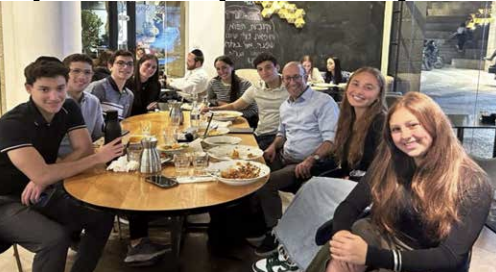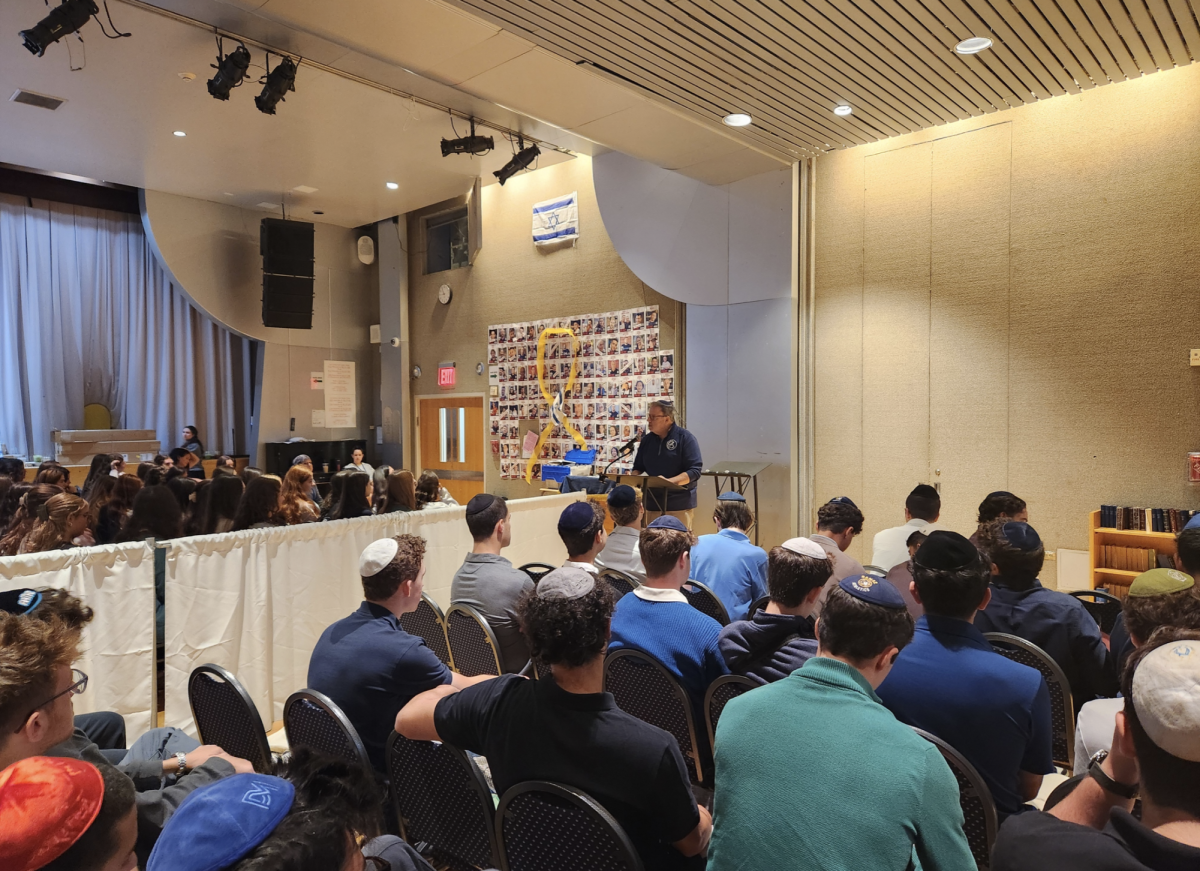
On October 19th, the Ramaz Upper School building saw a flood of returning alumni from the 2023 graduating grade. Some of these returning alumni were students who had their bags packed, plane tickets secured, and plans in place for their gap years but were advised to remain in the United States following the war in Israel. Also among the returning class were students who had already been in Israel when the war started and had returned home.
Brayden Kohler ‘23, one of the students who chose to return from his Yeshiva amidst the war, began studying at Yeshivat HaKotel in Jerusalem in mid-August and planned to return in June. Although currently in New York, Kolder ‘23 can still have the yeshiva experience from his home. He listens to recordings of his shiurim and video chats with his night chavrusa to continue learning even when physically separated.
When asked about his decision to return to the U.S., Kohler ‘23 expressed his initial opposition to the idea, stating that he “felt very guilty leaving, even if I’m not serving in the army.”
The turning point in his decision was his father’s adamant concern for his safety. As many others feel, the uncertainty of their families is always on their mind. Although Kohler ‘23 was living in Jerusalem, a relatively safe area at the moment, his father urged him to return to New York because, as Kohler ‘23 put it, “The situation, even in Jerusalem, can go from calm to a storm in less than one day.”
With the future uncertain and a return date out of sight, Kohler ‘23 plans to continue his Talmudic studies online and work on personal coding projects as he waits to return to Yeshivat HaKotel. While he plans to devote a lot of time to his projects, Kolder ‘23 stated, “G-d willing, I will be back in yeshiva before I finish any of them,” expressing his hope that the war will end as soon as possible.
Unlike Kohler ‘23, Mikaila Badner ‘23 had yet to leave the U.S. when changes were made to her gap year program. Badner ‘23 was supposed to leave for Bar Illan in Ramat Gan on October 10th, but is now taking classes exclusively on Zoom until November 6th. “I basically have a mix of Judaic and secular classes every day,” she said. But because of the online component, Badner ‘23 lacks the motivation to participate. “I haven’t really been going. It’s hard to just sit at your desk with a bunch of people you don’t know for hours on end.”
“It stinks having Israel postponed,” Badner ‘23 said. “Most of my friends who took gap years were at least able to go for a month or two, but I haven’t been able to go at all.” After four years of a rigorous dual curriculamat Ramaz, many graduates opt to take a gap year for the excitement and opportunities for relaxation and spiritual-growth.
The effects of the war in Israel are proving to be drastically far-reaching. It’s uncertain what the future of Yeshivat HaKotel, Bar Illan, and other schools and programs will look like this year, but at this stage, Badner ‘23 doesn’t have any new plans. Graduates whose gap years are being affected by the war may choose to postpone their college experience for another year, and some may disregard their plans entirely and attempt to start college.


